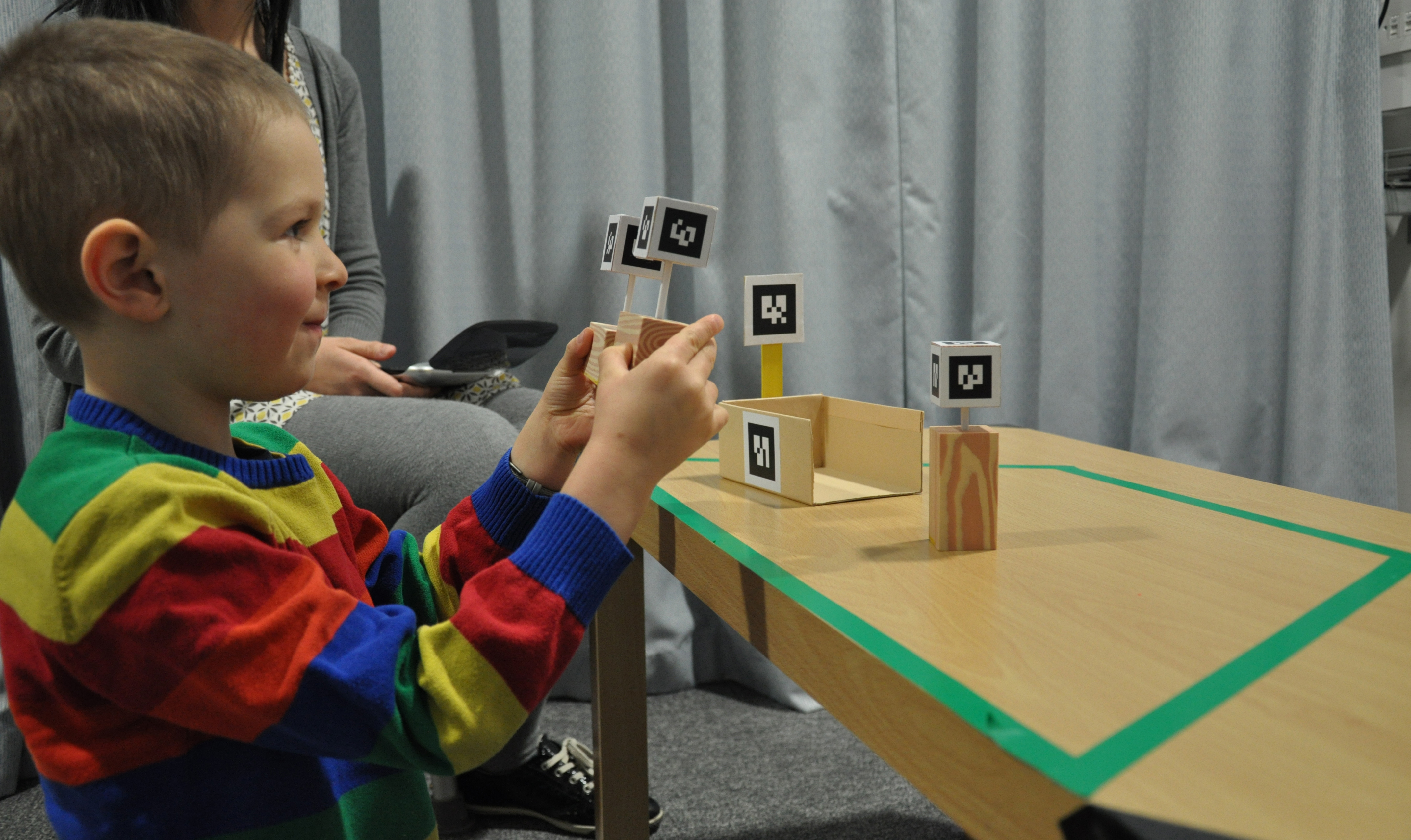In a child’s mind, everyday objects can become almost anything: a large cardboard box can be a rocket ship, or a wooden block can be a fighter jet. While this type of play, known as pretend or imaginative play, is a source of fun, it also plays an important role in cognitive development.
Imaginative play helps develop social and language skills, as well as “theory of mind” – the ability to recognise our own emotional states and that other people see things differently than we do. This type of play typically emerges around 18 months of age and reaches its peak between four and seven years of age.
The advantage of using AR is that it can help these kids to incorporate what they learn from the computer system into their reality.
Zhen Bai
For children with autism or Asperger Syndrome however, the ability to engage in pretend play is highly diminished. Autism spectrum conditions are characterised by difficulties in the development of social relationships and communication skills, and difficulty in sharing in imaginative play is one of the criteria used in making a diagnosis.
Currently, there are various intervention methods which are used to encourage children with autism or Asperger Syndrome to engage in pretend play, which have shown varying degrees of success. Recently, researchers at the University of Cambridge have developed an augmented reality system which aims to help children with autism to experience pretend play in a more visually engaging and meaningful way.
Augmented reality (AR), in which virtual objects are superimposed over real world images in three dimensions and in real time, is used in a variety of medical, military and industrial applications. The development of computer vision technologies and hardware capacities has now allowed AR technologies to be made available on personal devices.
Many autistic children are able to engage in imaginative play when instructed. However, one concern with this approach is that the child may simply imitate the actions being shown to them without actually forming original play ideas.
“The advantage of using AR is that it can help these kids to incorporate what they learn from the computer system into their reality,” says Zhen Bai, a PhD student at the University’s Computer Laboratory, who developed the system. “If it’s purely a virtual environment, it’s difficult to relate what they learn from that environment to the real world. But as AR is enhancing the real world, we hope it makes it easier for kids to generalise such pretend play experience to reality.”
In the system designed by Zhen, the child is given several vehicle-related scenarios – a car going through a car wash, for example – and a series of props such as blocks, tubes or boxes. He or she is asked to use the props to act out the scenario. Using AR techniques, as the child plays with the props, the imaginary objects are superimposed over the props on the computer screen in front of them. He or she can freely manipulate the props to explore different play ideas. The system is designed to make it easier for autistic children to experience using one thing as another thing in different play contexts, which hopefully will trigger engagement in pretend play and help them develop flexible ideas without explicit verbal instructions.
“Children with autism are often described as visual thinkers, so by externalising the mental image somewhere else in their reality, it may help them pick up the concept of imaginative play,” says Zhen. “It’s an open-ended play environment, and the AR system works as a scaffold to put the idea of pretend play on to – to help them visualise the activity in their mind.
“It’s not just the interaction between the child and the technology; we also view the technology as a platform to increase the opportunity for autistic kids to play together with their siblings, classmates and friends.”
A usability study of the system has been completed, and the researchers are seeking children between the ages of four and seven who have either Asperger Syndrome or high-functioning autism to take part in a larger study. Parents who are interested in having their children take part are asked to contact Zhen Bai on zhen.bai@cl.cam.ac.uk or 01223 763626.
Tags: asperger, augmented reality, autism, children, development, human development, play, zhen bai











